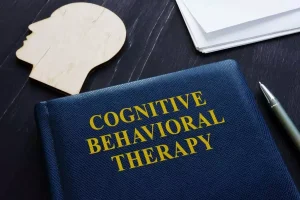Addiction Denial: Signs, Stages, and Causes

However, Stegall noted that being honest about the behaviors of family members is just as important so you know what genetic predispositions you may be facing. In many cases, the blaming and lying will not stop until the alcoholic admits to having a drinking problem. To help these individuals consider rehab, many families hold interventions. These meetings allow family members to persuade a loved one to seek help for addiction. Many people with alcohol addiction lie to hide their drinking habits or the severity of their addiction. Or they may say they’ve only had one beer when they’ve actually had many more.
- A more appropriate way to screen patients for alcohol impairment would be to use a standardized and more detailed review of patterns of drinking and alcohol-related problems such as the ten item AUDIT.
- During an intervention with a loved one, family members show love and support while setting clear boundaries around substance abuse and consequences related to drinking.
- They might say things like, “Let’s not make a big deal out of it,” or “I just enjoy a few drinks; it’s not like I have an addiction.”
- An important first step in addressing addiction is to recognize and accept how alcohol and substance use is impacting your life.
- When euphoric recall and fading effect bias combine, they create a powerful distortion in how we predict outcomes, which is called outcome expectancies.
Renewal Center for Ongoing Recovery
An experienced intervention specialist can help the participants prepare for these reactions so they can respond effectively. People can have a varied reaction and tolerance to alcohol and that doesn’t necessarily mean they are alcoholics. However, as functioning alcoholics drink more regularly, they develop a higher tolerance. They still want to feel the buzz or numb out from their problems for a while, so they will begin drinking more as their tolerance to alcohol increases. If your provider suspects that you have a problem with alcohol, you may be referred to a mental health provider.
Shabana Azmi Says ‘It Was Difficult’ As She Recalls Dealing With Javed Akhtar’s Alcoholism

Often, when confronted about their drinking habits, individuals in denial may brush off the concerns or downplay them as insignificant. They might say things like, “Let’s not make a big deal out of it,” or “I just enjoy a few drinks; it’s not like I have an addiction.” Let’s help you understand what constitutes alcoholism denial and why it poses challenges during recovery. We’ll explore how denial manifests itself through specific behaviors and thought patterns.

Drugs & Supplements

In the pre-contemplation stage, someone may not view themselves as having an addiction or be willing to evaluate their actions (denial). As the behavior continues, a person may begin to reckon with the idea that there may be a problem (contemplation). Denial can persist for short or long periods and looks different for everyone. However, as addictive alcoholism and denial behaviors become more disruptive to a person’s life, it can be harder to deceive oneself and others and ignore what is happening. Researchers say that experiencing family, work, and legal problems significantly increases the likelihood that people will enter AUD treatment.[4] Getting arrested or fired are two consequences no one can deny.
Depression and Addiction
Because he is a member of a support group that stresses the importance of anonymity at the public level, he does not use his photograph or his real name on this website. Natural consequences may mean that you refuse to spend any time with the person dependent on alcohol. If your loved one has become addicted to alcohol, however, their brain chemistry may have changed to the point that they are completely surprised by some of the choices they make.
Denial in Alcohol Use Disorder
But deep down inside, there’s resistance preventing them from taking meaningful action toward recovery. “Mental health care is critical for achieving long-term success in overcoming AUD,” says Elhaj. Anger and frustration can be tough emotions when supporting someone with AUD. Reminding yourself that you can’t “fix” your loved one — but you can be there for them — can help you cool off, says Elhaj.
Sixty-seven percent of 94 AUD probands and 82% of 176 AUD offspring reported themselves as light or moderate social drinkers despite averages of up to 12 maximum drinks per occasion and four DSM problems. Regression analyses indicated deniers evidenced less intense alcohol and drug-related problems and identified DSM-IV criterion items that they were most likely to deny. The psychodynamic perspective suggests that denial is basically a defense mechanism (McWilliams, 2011). That is, individuals with substance disorders use denial in order to prevent threatening emotions entering our conscious thought.
Do Understand They’ll Need Outside Help
Our memory is like a playlist—only the favorite songs get replayed, leaving out the ones less liked. If I asked you about your past drinking experiences, you’d likely recall the bonding https://ecosoberhouse.com/article/consequences-of-drinking-and-driving-dui/ moments or numbing relaxation rather than the drunk argument and frequent blackouts. How come we only remember why we wanted to quit after we’ve already reached for the drink?
- It can be seeking professional help, joining support groups like Al-Anon or Alcoholics Anonymous (AA), talking openly about concerns, or attending educational programs for those grappling with substance abuse disorders.
- On the other hand, someone who drinks a lot once a week is dealing with a substance abuse disorder.
- On some level, you know there is a problem that needs to be addressed, but you feel that nothing you do or say will make a difference.
- For addiction problems, make that first call to a substance use disorder hotline or recovery center, or try attending just one meeting of a 12-step program (such as Alcoholics Anonymous).